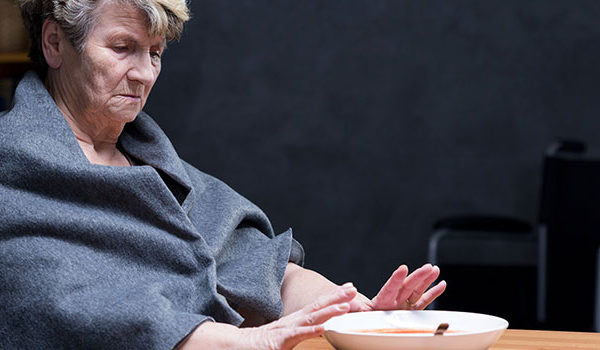How to prevent your elderly relative being scammed
It’s horrifying to think that there are people out there who prey on elderly and vulnerable people in our society. Unfortunately, over 53% of people aged 65 and over have been targeted by fraudsters. This means it’s likely that an elderly relative of yours could be at risk of a scam. One thing you can do to help prevent your elderly relative being scammed, is to teach them about scamming, what to be aware of and how to prevent it happening.
Scams can come from people who are selling products and services, or investments. If you are concerned that your elderly relative is being tricked, or buying products and services they don’t need, warning signs you can look out for are large amounts of post, or evidence of large cash withdrawals.
If you do discover that your elderly relative has been a victim of scamming and fraud, offer advice, be supportive and reassure them that this can happen to anyone, so they don’t feel stupid.
1. Rogue Traders
Some scammers appear as fake tradesmen who call at elderly people’s homes and worry them by telling them their home needs emergency work carried out. Often, the elderly person in so worried that they allow the person to carry out the work and usually this ends with them parting with huge sums of money for something that was not required in the first place, and probably won’t get done anyway. A rogue trader might ‘groom’ the elderly person by doing odd jobs for them for free to gain trust before they start taking their money.
A way to ensure this doesn’t happen to your elderly relative is to ensure you are regularly talking with them about what happens in their daily life, and that you know who is coming and going. Ask your relative to only use a trusted trader, and not to engage anyone on the doorstep. If they are concerned they should ring you.
There are online directories you can use to find a trusted trader:
- TrustMark – Government approved traders
- Trust a Trader – Trusted tradesmen with customer reviews
- Trusted Traders – Recommended by Which?
2. Postal Scams
Postal scams are letters that are sent with the intent of extracting money from the recipient. Elderly people often fall prey to these as back in their day, it was a different world where letters were more trusted. Sometimes the letter is about winning a large sum of money where you have to pay a fee to receive it. It might be a money making scheme, or something that preys on their worry, or a sad story from someone making out they need financial help.
Once your elderly relative responds to one of these letters, their name is added to what criminals call a ‘sucker list’. You relative will start receiving vast amounts of mail. This can be incredibly stressful.
If your elderly relative has access to the internet, they should check any mail like this before taking any action, and you can offer to be a second opinion. Also to bear in mind that if it sounds too good to be true, then is probably isn’t.
Advise your relative to treat everything asking for money as suspicious, unless it is their usual bills of course.
Steps you can also take to stop any unsolicited mail:
- Register with the Mail Preference Service – this will reduce the amount of junk mail received.
- Put a ‘No Junk Mail’ sign on the front door.
3. Email Scams
More and more elderly people are getting on the internet now, and this is a ripe area for potential scams. Email is a popular way to try and scam people. Email scammers have reportedly scammed over 1 million older people in the UK.
Email scams come in all forms, from people asking you to help them financially, to emails that look like they are from your bank and asking for personal details, and much more.
Make sure that your elderly relative is aware of email scamming. Advise them:
- Not to click on any attachments or links from any sender they do not know
- Do not click on links asking for bank details and never provide bank details via email
- Do not reply to emails that are junk or not from a trusted source as this validates the email address and they will receive much more junk email.
Some signs to watch out for:
- The senders email address will not match the company they are saying they are from. For example, the email might look like it is from your bank but the sender is using a hotmail email address.
- A sense of urgency in the email, asking you to pay money, or provide personal details like passwords and bak details.
- The email uses bad grammar and has spelling mistakes.
You can report cyber crime to the National Fraud and Cyber Crime Reporting Centre.
4. Social Media
Social Media has become another channel for fraudsters to try and extract money from people. It can also be more convincing as the scammer is now a person, often with a photo on their profile too. They will message your relative providing a sob story, asking them to wire money to them.
You can help them to avoid falling for this tactic by making them aware that it happens, also by helping them to set up their privacy options. You can restrict anyone that you are not friends with from being able to send you private messages. If it does happen, report the message to Facebook, as well as the National Fraud and Cyber Crime Reporting Centre.
5. Distraction Crime
Distraction crime is where someone comes to the door posing as someone such as a utility worker, tradesperson, or perhaps someone asking for help. While you are dealing with the front door, their accomplice is at the back of the house, getting inside to commit burglary.
Make your relative aware that they should answer the front door safely, ensuring any back doors and windows are locked. They should always be very careful when someone comes to the door that is unexpected.
6. Doorstep Sales People
Doorstep sales people should never be let into your elderly relative’s home to be sure of safety, this is due to many of them having fake IDs and using pressure to gain entry. No matter what the deal is, or how time limited it is, there is no reason to let them in. Ask your relative to call you if they are having trouble with a persistent sales person knocking on their door. It can cause a great deal of distress, and sometimes people buy something to get rid of them.
You or your relative can report a salesperson to Citizens Advice or their local Trading Standards Authority.
7. Investment and Pension Fraud
A fifth of elderly people who have fallen prey to investment scams do not report them. Often this is due to embarrassment or they do not know how to report it. It’s important to talk with your elderly relative about their investments, ensuring they only invest with legitimate companies and brokers.
The Government and the Financial Conduct Authority has set up a website to help your elderly relative and you check for investment scams called ScamSmart.
8. Property Scams
This is a particularly heartless and cruel activity by criminals. The elderly person is conned into signing their home over to criminals. It might start with a letter, then a visit. The person will create worry and a sense of urgency. They may use tactics like telling the elderly person that they have to pay an insurance to protect their home against care cost calculations.
Alternatively, the criminal might be offering investment in property that hasn’t been built yet, or is in another country.
If your relative suspects they have become a victim of property fraud, they can report it to the Property Fraud Line on 0300 006 7030.
9. Telephone Calls
Telephone calls can be highly stressful and similar to doorstep sales people, there is always a sense of urgency. Ask your elderly relative to be aware of these, and to never give personal details over the phone, like passwords and bank or card details.
You can always ask for an email or letter instead of dealing with the phone call. If the company is legitimate, they will be able to send you an email or letter to back up their call.
Your relative can register their phone with the Telephone Preference Service (TPS). You can also log complaints about bothersome calls through the TPS.
10. Reporting Scammers
We are in a continuous fight against scammers and fraud. It’s important to always report scammers because this helps us to better understand their activity and in many cases to make arrests.
Ensure your elderly relative is safe from scammers by having conversations with them to make them aware.




